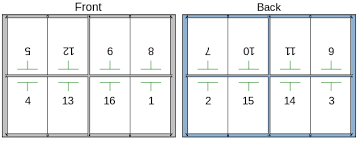imposition
英 [ɪmpə'zɪʃ(ə)n]
美 [,ɪmpə'zɪʃən]
1. im- "into, in, on, upon" + posit- + -ion.
2. 字面含义:put upon, place upon, a laying on.
3. => the levying of taxes, a tax, duty.
4. => the act of putting (something) on (something else).
5. 或者说:以次充好,以假乱真,以假代真。=> 欺骗、欺诈。
6. put false on true, put false replace true.
- imposition (n.)
- late 14c., "the levying of taxes, a tax, duty, tribute," from Old French imposicion "tax, duty; a fixing" (early 14c.), from Latin impositionem (nominative impositio) "a laying on," from imponere "to place upon," from assimilated form of in- "into, in" (see in- (2)) + ponere "to put, place" (past participle positus; see position (n.)). Sense of "the act of putting (something) on (something else)" is from 1590s. Meaning "an act or instance of imposing" (on someone) first recorded 1630s (see impose).
- 1. I know this is an imposition. But please hear me out.
- 我知道这是强人所难。但是请听我说完。
来自柯林斯例句
- 2. the imposition of martial law
- 戒严令的实施
来自《权威词典》
- 3. She felt the journey to be an unwelcome imposition on her time.
- 她觉得行程占用了她的时间,心中颇为不快.
来自《简明英汉词典》
- 4. Several reasons were put forward to justify the imposition of censorship.
- 举出了几条理由来证明实行审查是不合理的.
来自《简明英汉词典》
- 5. The main grievance of the drivers is the imposition of higher fees for driving licences.
- 让驾驶员深感不满的是驾驶执照收费的提高。
来自柯林斯例句
[ imposition 造句 ]
